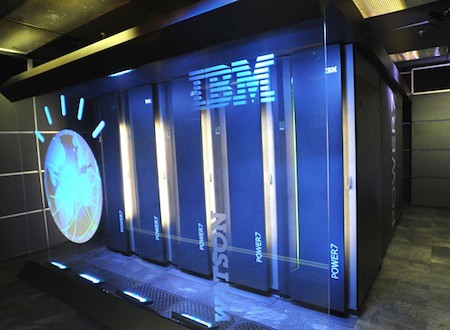
By Jon Fisher (@jmfisher)
Now that IBM super computer Watson has trounced Jeopardy players its ready to take on health care. Watson is an artificial intelligence computer system made up of 90 servers, with the processing power equal to 2,880 computers. Running hundreds of algorithms simultaneously, Watson parses human language complexities to construe meanings from clues and produce a probable answer. Demonstrating its victory on the game show floor, scientists are readying to bring the machine to patients bedsides to improve health and foster better diagnostic decisions. American Medical News notes a commercial product could be available as early as 18 months.
Skeptics are right in saying that the technology will never replace trained physicians and nurses; that is not its intent. The promise is that one day Watson might serve a critical role in assisting doctors accurately diagnose and treat patients by helping them analyze data in a way that goes beyond human capabilities. Robert Sicconi, program director of IBMs Thomas J. Watson Research Center explains it this way to American Medical News:
One of the problems in health care is that 10,000 medical papers are published each year. There’s no way a human could read all those papers and recall the information in them with the accuracy and speed Watson could bring. Watson has the ability to become smarter over time as more information is added to its knowledge base.
No matter how qualified or experienced your doctor is, theres always the possibility of mistake or complication. Even with significant education and experience, every medical encounter is different. Its simply impossible for any physician to process all the information available. Twenty percent of medical errors are diagnostic errors, but theyre not necessarily misdiagnosis; theyre delayed, which can lead to incorrect treatment, delayed treatment or no treatment at all. Delaying diagnosis or treatment can mean the difference between life and death.
Watson, on the other hand, can process all that information and get to a diagnosis sooner than is humanly possible. As a clinical decision support tool it can help doctors make more informed decisions or check their thinking. By putting more information at a doctors finger tips, and ensuring that the right decisions are made, they will be able to deliver better care to patients. Considering thats the goal at the end of the day, it seems elementary bring on Dr. Watson.